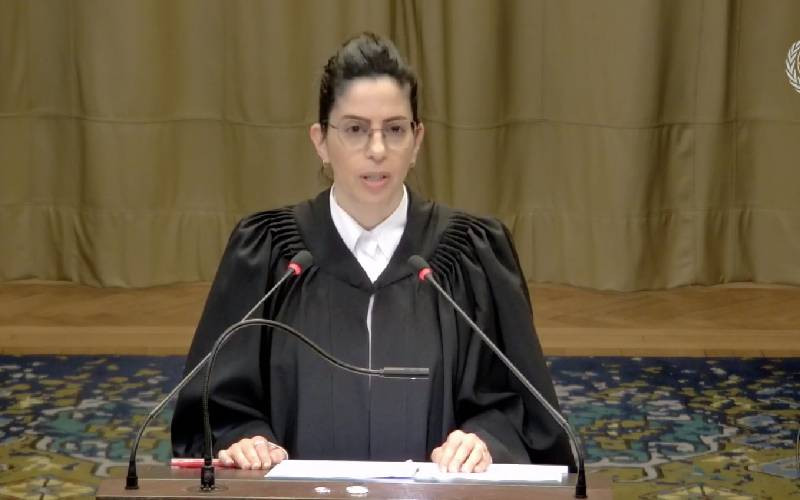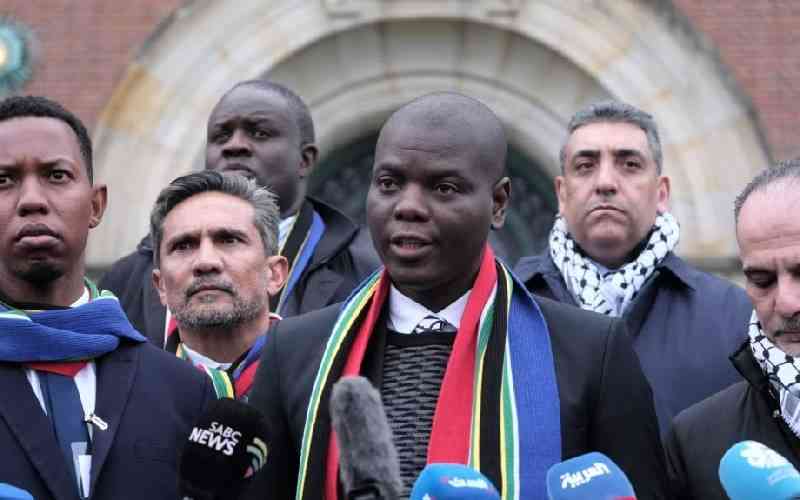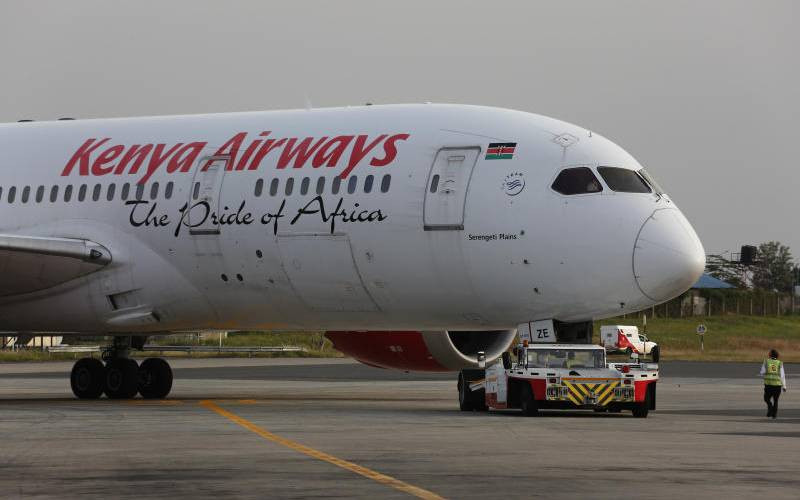While President Uhuru Kenyatta sat in the ICC court last week as a private citizen and not the Fourth President of Kenya, Head of State and Government, and Commander-in-Chief, ICC prosecutor Fatou Bensouda made an alarming statement that has not been given due attention.
In her confession that her team has no evidence against President Kenyatta, she called for postponement of the case until 2017. She further stated that as long Kenyatta is still President, her team will never get the evidence they require.
The question then arises, what does ICC know and we don’t about 2017, which is the next General Election? Is the ICC working on a regime change in Kenya to get a crony as a president who can help convict President Kenyatta perhaps on cooked evidence? And whose narrative was the prosecutor voicing in the court? Was it the narrative of some powerful western countries?
To me, that was the most powerful message from the last session of the ICC. And it explains why a court told by the prosecution that there is no evidence against President Kenyatta, cannot dismiss the case.
The ICC’s summons of President Kenyatta was a face-saving device by the judges and prosecution but could well have a loss-of-face factor for Kenya’s national brand if it is not handled with the greatest sensitivity, protocol and security dynamics.
The appearance comes after a triumphal maiden address to the United Nations General Assembly in New York in September, which the President and Mrs Margaret Kenyatta attended not only as Kenya’s First Couple but also each with a programme of their own, the First Lady at the direct invitation of Secretary General Ban Ki-moon himself.
Kenya has always been a sterling member of the UN, and it pays its dues diligently and on time at a time in the 1970s and 80s when many African and other developing nations were not doing so.
This country has also been exemplary in supporting and participating in UN peacekeeping forces.
Kenya remains the only developing country to host a UN Headquarters complex, at Gigiri, Nairobi.
As for the crimes against humanity cases that face President Kenyatta and Deputy President William Ruto at The Hague (as well as former broadcaster Joshua arap Sang), the ICC has never received such a degree of cooperation and observance of every relevant protocol than it has from Kenya.
None of the major Western powers pay anything but lip serve and money to the ICC and the United States, the global superpower, still has a law on its statute books that authorises its armed forces to attack the Court at The Hague if it ever gets hold of an American citizen.
The ICC summoned President Kenyatta at a time when it has become abundantly clear that the case against him is not based on evidence that can stand the scrutiny of due process anywhere. However, the Prosecution, realising that it ought never to have started the case and the judges of the confirmation Chamber ought never to have confirmed it, is falling back on a legal nullity – requiring Mr Kenyatta and the Government he heads to both investigate and incriminate himself. This is an abomination and it must not stand.
What’s more, President Kenyatta is Head of State in a jurisdiction where the Judiciary does not proceed in a case where there is no evidence, however heinous the allegations against the accused are. Two recent cases will serve to illustrate this point. On September 10, the High Court of Kenya in Mombasa rejected a bid by the Director of Public Prosecutions to charge Lamu Governor Issa Timamy with mass murder and forcible eviction of a population in the matter of the Lamu and Mpeketoni massacres in June and July this year.
The High Court threw out the case against Timamy at precisely the time the prosecution asked to be granted more time to investigate him. Timamy was arrested on June 25 and bailed out for Sh5 million. However, three months later the DPP had still not charged him but kept asking for more time. Rejecting the request for extension by the State, Mr Justice Martin Muya ruled it was neither serious nor grounded in law and it would therefore be prejudicial to Mr Timamy’s rights to be ordered to continue attending court without charges preferred against him.
Only last week, Mr Ahmed Dugal, the owner of the vehicle that exploded at the Pangani Police Station, Nairobi, in April this year, was acquitted of terror-related charges for lack of evidence.
The ICC can borrow a leaf from the Kenyan courts — there is no need to proceed when there is no case; that would be proceeding for proceedings’ sake and deeply injurious to the rights of the wrongly accused.
Kenyans must not lose sight of the world context in which the cases at the ICC have been taking place. As the respected Economist magazine warned in its September 7, 2013, edition in a story on the Kenyan cases headlined, “It’s show time”, “The trial of Kenya’s President Uhuru Kenyatta and his deputy William Ruto could affect justice and political stability at home and abroad. Their trials may last several years and could keep Kenya’s leaders away from government business for long, disruptive periods”.
The ICC must relent and Kenya’s stability, dignity, sovereignty and long and useful membership of the UN must count.
 The Standard Group Plc is a
multi-media organization with investments in media platforms spanning newspaper
print operations, television, radio broadcasting, digital and online services. The
Standard Group is recognized as a leading multi-media house in Kenya with a key
influence in matters of national and international interest.
The Standard Group Plc is a
multi-media organization with investments in media platforms spanning newspaper
print operations, television, radio broadcasting, digital and online services. The
Standard Group is recognized as a leading multi-media house in Kenya with a key
influence in matters of national and international interest.
 The Standard Group Plc is a
multi-media organization with investments in media platforms spanning newspaper
print operations, television, radio broadcasting, digital and online services. The
Standard Group is recognized as a leading multi-media house in Kenya with a key
influence in matters of national and international interest.
The Standard Group Plc is a
multi-media organization with investments in media platforms spanning newspaper
print operations, television, radio broadcasting, digital and online services. The
Standard Group is recognized as a leading multi-media house in Kenya with a key
influence in matters of national and international interest.








